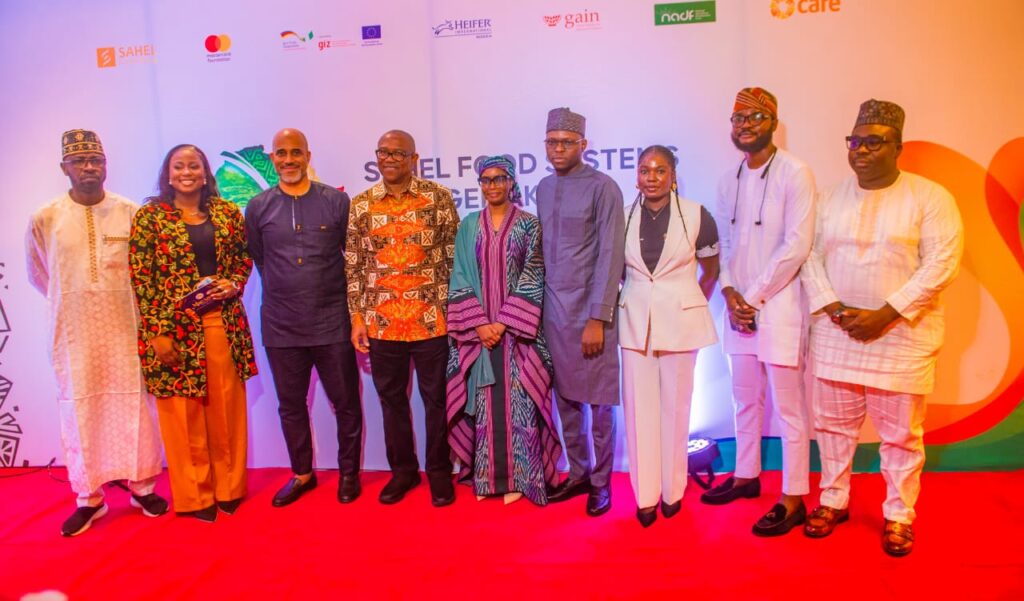Sahel Consulting Agriculture & Nutrition Ltd. has partnered with the Mastercard Foundation, Heifer International, and GIZ to host the 2025 changemakers conference.
The event, themed “Designing for Legacy: Building Resilient and Impact-Driven Food Systems” brought together policymakers, business leaders, farmers, and development partners from across Africa aims to help change makers rethink on how agricultural systems are designed and sustained and well build a shift from short-term intervention projects to a people-centred and sustainable transformation of Africa’s food systems.
Mezuo Nwuneli, Co-founder of Sahel Consulting, highlighted the urgency of preparing Africa’s food systems for population growth. He said, “Over 500 million people will be added to Africa’s population over the next 10 years, and these individuals need to be fed. We’re either going to do it with homegrown food or with imports. We need to boost yields, improve efficiencies, and enable farmers to grow more. Most importantly, we need homegrown solutions, not copy-and-paste models from elsewhere.”
His comments set the tone for discussions on innovation, self-reliance, and policy reform to strengthen Africa’s food value chains.

Temi Adegoroye, Managing Partner at Sahel Consulting, expanded on the conference theme, stressing the importance of embedding sustainability in every agricultural initiative.
Adegoroye said, “Designing for legacy means embedding sustainability right from the start. It’s about building systems that begin with people and shifting from short-term fixes to long-term transformation. True impact isn’t about how much we spend, but about programmes that continue to create change long after funding has stopped.”
She called for closer alignment of agricultural projects with national priorities and stronger institutional frameworks to sustain outcomes beyond donor cycles.
Sen. Abubakar Bagudu, Minister of Budget and Economic Planning, emphasised that food systems transformation must remain central to national development planning. He said, “Building resilient and impact-driven food systems should be hardwired to any economic plan. It is a demonstration that the food system moved from primitive practices to modern, innovative and creative systems.”
Abubakar Kyari, Minister of Agriculture and Food Security, represented by Nuhu Kilishi, Director and Head of the Ministry’s Nutrition and Food Safety Department, outlined the need to strengthen agricultural value chains, reduce post-harvest losses, and prioritise the inclusion of women, youth and marginalised farmers in the growth process.
The conference featured Action Roundtables, where participants agreed on key commitments across governance, climate-smart agriculture, youth and women inclusion, and financing. Each group outlined steps to sustain collaboration and measurable progress.




